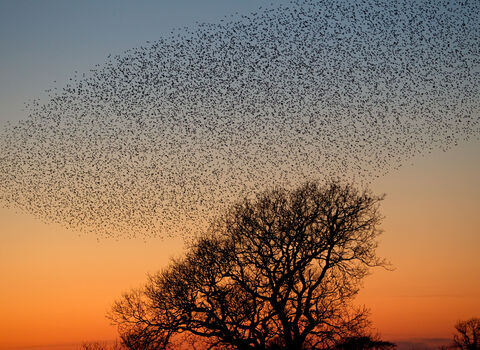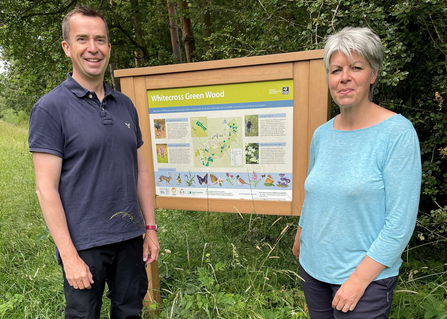A group of demonstrators at the Restore Nature Now rally.
Campaign for wildlife
There are many ways of making change happen and one of these is to lobby your local representative in person and/or in writing.
Developing a relationship with local politicians can be very effective and remember they are there to represent you – it is their job to listen to you!
You can find resources here to help you speak up for wildlife and make your campaigning voice heard.
If you are interested in helping wildlife by lobbying your MP and/or local councillors, please join our Wildlife Ambassadors. We will contact you with suggested actions, including advice about what you can include in your communications.
When emailing or writing to your MP, don’t forget to include your full name and your postcode. Some MPs require a full address and contact telephone number so it might be worth including this information if you are comfortable doing so. Most MPs will send an automatic reply on receiving your email stating their requirements, so be prepared to resend your email with any adjustments.
MPs can only help their own constituents, you can check who your MP is and find out more about them at www.theyworkforyou.com

Starling murmuration by Danny Green/2020VISION
The Nuclear Regulatory Review
Don’t turn a nature crisis into a catastrophe
Wildlife and natural places need more protection, not less. But the UK Government is thinking about making it even easier and cheaper for developers to destroy our last few natural spaces.
A new report called the Nuclear Regulatory Review is suggesting that protections for nature should be weakened. It says these protections result in unnecessary costs for developers. This is not true. We can't afford to destroy the few havens we have for wildlife.
This isn't policy yet - there's still time to stop this from happening!
We are currently campaigning on the following issues:
- We are calling on the Government not to weaken the protections that make legally protected sites and landscapes safe havens for wildlife.
- We are calling on the Government to give bespoke protections for all chalk streams.
- We are campaigning for a complete ban on the extraction and commercial trade of peat.
- We are calling on the Government to stop issuing badger cull licences immediately.
- We are calling on the Government to take action to halt and reverse the decline in nature.
Useful resources

Calum Miller, MP for Bicester & Woodstock with Estelle Bailey, BBOWT Chief Executive
Blogs
These blogs describe how wildlife ambassadors have arranged, prepared for and followed up meetings with MPs. They provide plenty of advice about what to do if you are thinking of meeting your MP.
Now's the time to meet your MP
Videos
If you feel daunted by the idea of contacting your MP or councillor, the videos below aim to give you confidence and point you towards useful resources to help you prepare and get your message across.
How to lobby your MP and local councillor (https://youtu.be/Le6a_eUyJwI)
How to lobby your MP and local councillor
How to Make Your Voice Heard - Lobbying Your Elected Representatives (https://youtu.be/u6aziIAKLks)
How to Make Your Voice Heard - Lobbying Your Elected Representatives
Who to contact
You can find out who your MP is here.
You can find out who your local councillor is here or try going straight to your council website.
Contact us at publicaffairs@bbowt.org.uk for more advice on lobbying or to let us know what action you have taken and how your MP/councillor has responded.
